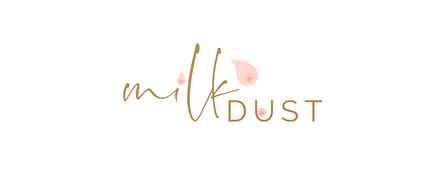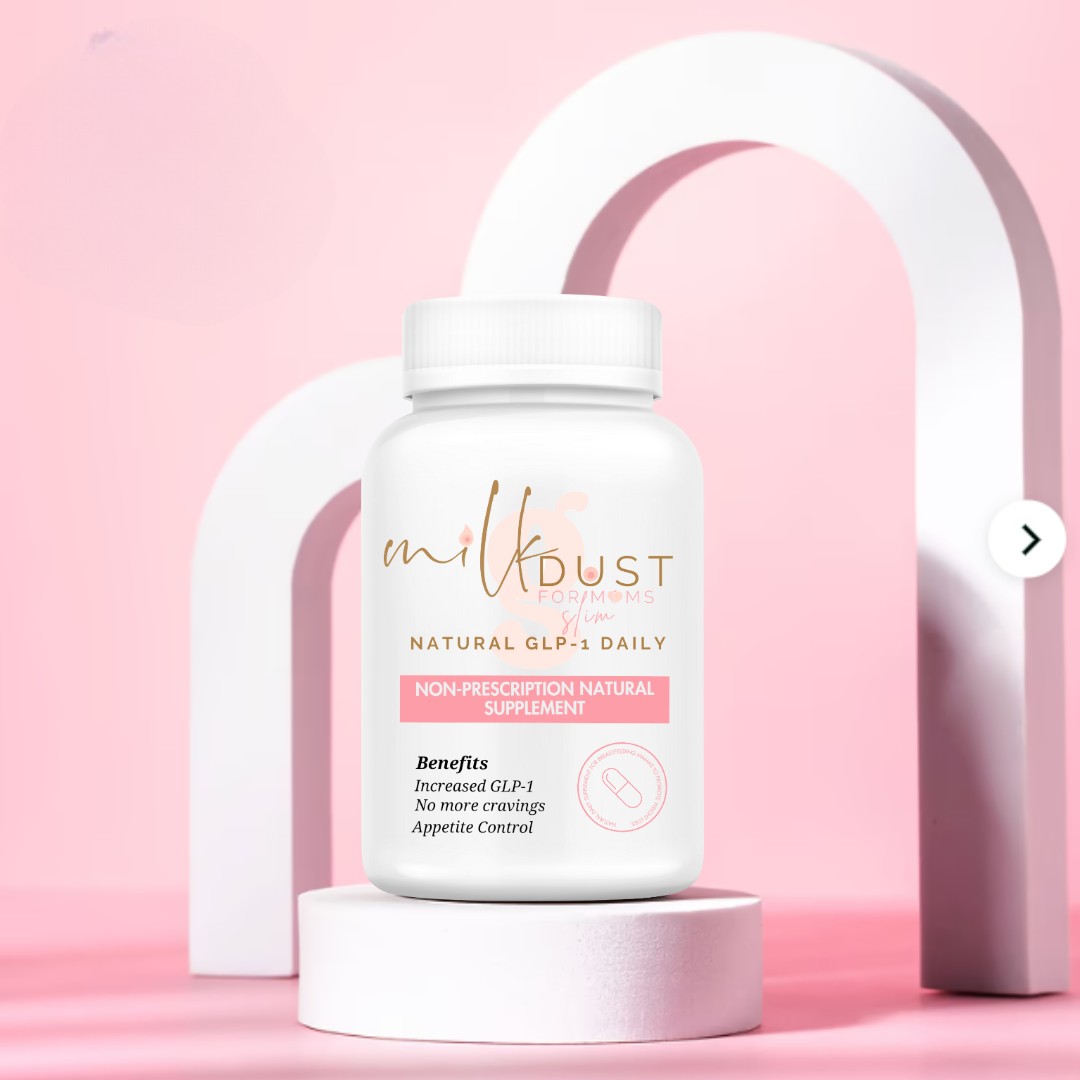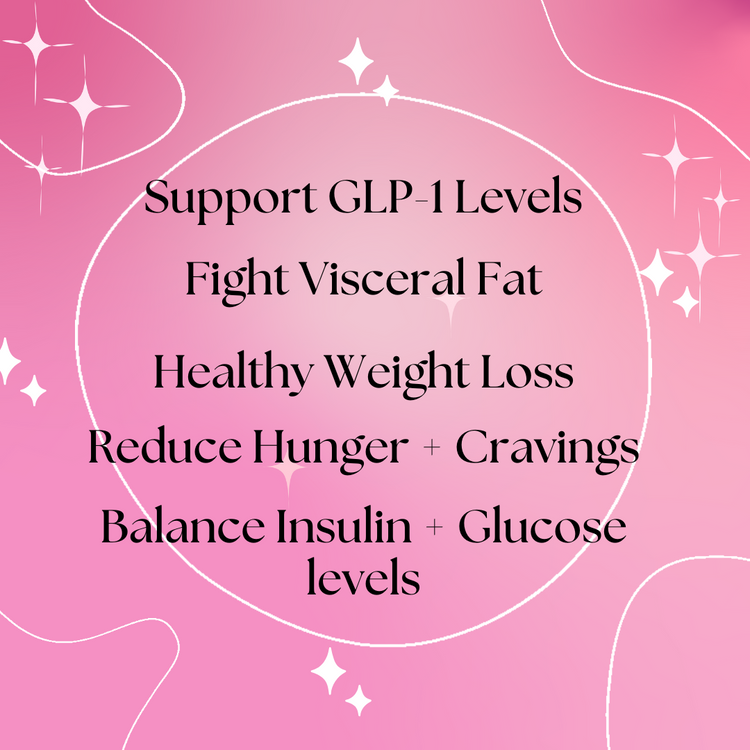Postpartum weight loss and fitness is always a little more complicated if you are breastfeeding. I know I had a hard time knowinghow hard to workout out, and how much to do, so I didn't lose my milk supply. But, after 4 babies now, I've learned exactly what it takes to build muscle back after pregnancy, as well as lose the extra weight without losing milk supply. I've found that focusing on high-quality, nutrient-dense foods is the most important tip for building muscle and losing weight. The nutrients you chose will protect your milk supply, as well as balance your hormones. From there, your workouts are going to be really important too, so you can slowly build your strength back without getting injured.
Of course, I am assuming you are cleared by your doctor to embark on your fitness journey, and you can't start any diet, nutrition or workout plan without consulting with your doctor first!
Nutrition and fitness postpartum doesn't have to be complicated, but your nutrient intake is more important if you are breastfeeding. Almost all nutrient needs are increased while breastfeeding, so you have extra nutrients to give to baby! I am going to guide you through how to eat for optimal muscle growth and fat-burn, while also keeping your milk supply. You'll hopefully have a full understanding of where to go from here, and how to get started!
Maternal Body Composition Through Pregnancy, Postpartum and Breastfeeding:
Pregnancy, postpartum and breastfeeding all push your body through a lot of changes that are mainly due to various hormones surging and dropping. During pregnancy, the increased estrogen is actually helpful for gaining muscle.
A recent study looked into the positive effects on baby when doing resistance training during pregnancy. This study found that, "children born to women who performed weight-bearing exercise 3–5 times per week throughout pregnancy were longer and had more lean body mass than matched controls. Other studies show a reduction in fetal fat mass while maintaining lean tissue." There are so many benefits to working out and building muscle during pregnancy, and you can read all about them in this article.Many professionals suggest a 3-day training schedule because it puts less stress on the joints during pregnancy, which are more relaxed for birth. The presence of relaxin, the hormone that makes ligaments stretch more, is actually helpful for muscle building. This article suggests, "Muscle fibers change biochemically, from slow oxidative to fast glycolytic (Lefaucheur & Ecolan, 1990; Lontay et al., 2015), and there is even evidence that new muscle fibers (Li et al., 2006; Rehage et al., 2007) are formed in the presence of relaxin, which are younger and thus produce higher forces (Mu et al., 2010). Additionally, some of the hormones, such as relaxin, have a vascularizing and vasodilating effect on muscle (Braun et al., 2012; Willcox et al., 2013), effects that have the potential to affect muscle performance during exercise." During pregnancy it is much harder to build muscle and lose fat (although you can!), so completely recomping your body may be difficult, but once baby is born, and your body can use the extra fat as fuel for breastfeeding, you can start working on recomping your body and changing your physique.
Postpartum hormone levels can make building muslce difficult. No studies have shown exactly how prolactin effects a mother's ability to build muscle, and most postpartum mamas tend ot lose muscle after pregnancy. A lot of this is due to a lack of activity for 6 weeks, as well as increased caloric needs for breastfeeding. Not being able to workout and stay active while recovering postpartum is a large factor in reducing muscle mass. It is really important to combat this muscle loss as soon as possible! With the right nutrition and workout routine, you can rebuild your muscle mass and recomp your body while breastfeeding.
The Impact of Nutrition on Breast Milk Quality
Nutrition is not only important to losing weight and gaining muscle, it is also really important to the quality of your breast milk. By focusing on nutrient-dense foods, you can help your body provide baby with amazing breast milk, and these foods and nutrients are amazing for weight loss and building muslce too!
I am obviously a huge proponent of protein during lactation for both milk supply and weight loss, and of course protein is really important for building muscle too.
The importance of protein for breast milk quality:
Protein intake plays a crucial role in the quality of breast milk, influencing both its composition and nutritional content. Here are some ways in which protein intake can affect breast milk quality:
-
Protein Content: The overall protein content of breast milk is influenced by the mother's dietary protein intake. Adequate protein intake is important to ensure that breast milk provides the necessary amino acids for the infant's growth and development.
-
Amino Acid Composition: Breast milk contains various amino acids, the building blocks of proteins. The specific amino acid profile of breast milk can be influenced by the mother's protein intake. Amino acids are essential for the synthesis of proteins, enzymes, and other vital substances in the baby's body.
-
Immune Factors: Proteins in breast milk, such as immunoglobulins, lysozymes, and lactoferrin, contribute to the baby's immune system development. Adequate protein intake supports the production of these immune factors, promoting the infant's health and protection against infections.
-
Tissue Repair and Growth: Protein is essential for tissue repair and growth, and breast milk provides the necessary proteins for the development of the baby's organs, muscles, and other tissues. A mother's protein intake can impact the availability of these nutrients in breast milk.
-
Enzymes and Hormones: Breast milk contains various enzymes and hormones that aid in digestion and overall metabolic function. Proteins from the mother's diet contribute to the synthesis of these bioactive compounds, influencing the baby's physiological processes.
It's important for breastfeeding mothers to consume an adequate amount of high-quality protein sources in their diet. Good sources of protein include lean meats, poultry, fish, eggs, dairy products, legumes, nuts, and seeds.
Milk Dust Lactation Protein Powder for Muscle Building While Breastfeeding:
Milk Dust, I handpicked specific vitamins like folate (L-methylfolate), which is as important during lactation as it is during pregnancy. I also chose vitamin B12 for energy, and superfoods like chlorella, spirulina, spinach, and blueberries. To help mamas combat sugar cravings, I included stevia, monk fruit and organic cane juice so mamas can enjoy the sweetness with very little sugar. Plus, herbs like turmeric and cinnamon bark, and minerals like chromium, balance blood sugar and taste delicious. It’s like drinking a milkshake! To top it off, Milk Dust is plant-based, vegan, made of non-GMO ingredients and is free of soy, gluten, dairy, and corn.
Milk Dust is the only protein powder on the market that is clean, nutrient-dense and specifically made for postpartum healing, nourishment, lactation, and weight loss. Enjoy!
Milk Dust is specifically formulated with the highest quality, organic ingredients to promote nutritional excellence in breastfeeding mamas, while also curbing the sugar cravings that can inhibit weight loss.

The importance of omega-3 fatty acids for breast milk quality:
Omega-3 fatty acids play a significant role in influencing the quality of breast milk, providing essential nutrients for the development of the infant's nervous system and overall health. Here are some ways in which omega-3 fatty acids impact breast milk quality:
-
Brain and Nervous System Development: Omega-3 fatty acids, particularly docosahexaenoic acid (DHA), are crucial for the development of the infant's brain and nervous system. DHA is a major component of neuronal cell membranes and is important for cognitive function and vision development.
-
Visual Acuity: DHA, one of the omega-3 fatty acids, is specifically important for the development of the baby's vision. It is a key component of the retina, and a sufficient supply of DHA in breast milk contributes to visual acuity in infants.
-
Immune System Support: Omega-3 fatty acids have anti-inflammatory properties and can modulate the immune response. Including omega-3s in the diet may contribute to immune system support, providing the infant with added protection against infections.
-
Anti-Inflammatory Effects: Omega-3 fatty acids, including both DHA and eicosapentaenoic acid (EPA), have anti-inflammatory effects. This can be beneficial for the baby's overall health and may help reduce inflammation in the body.
-
Optimal Fat Composition: Omega-3 fatty acids contribute to the overall fat composition of breast milk, helping to maintain an optimal balance between omega-3 and omega-6 fatty acids. Achieving this balance is important for promoting healthy growth and development in infants.
Sources of omega-3 fatty acids include fatty fish (such as salmon, mackerel, and trout), chia seeds, flaxseeds, walnuts, and algae-based supplements. It's important for breastfeeding mothers to include these sources in their diet to ensure an adequate supply of omega-3s in breast milk.
The 7 most important nutrients for breastfeeding are:
-
Calcium: Essential for maintaining bone health, calcium is crucial during breastfeeding. If the diet is lacking in calcium, the body may draw from maternal bones, potentially affecting bone density.
-
Iron: Iron is necessary for preventing anemia, which can be a concern during and after pregnancy. Breastfeeding mothers should continue to consume iron-rich foods or supplements as recommended by their healthcare provider.
-
Protein: Protein is vital for tissue repair and growth. Breastfeeding mothers should include good sources of protein in their diet, such as lean meats, poultry, fish, dairy products, legumes, and nuts.
-
Omega-3 Fatty Acids: Omega-3 fatty acids, particularly DHA (docosahexaenoic acid), are crucial for the development of the baby's nervous system. Fatty fish like salmon, chia seeds, flaxseeds, and walnuts are good sources.
-
Folate: Folate is important for cell division and DNA synthesis. It helps prevent neural tube defects in infants. Leafy green vegetables, fortified cereals, and legumes are good sources of folate.
-
Vitamin D: Essential for bone health, vitamin D also plays a role in immune function. Sun exposure, fortified dairy products, and vitamin D supplements are common sources.
-
Hydration: While not a nutrient, maintaining adequate hydration is crucial during breastfeeding. Water is essential for milk production and helps prevent dehydration.
Focusing on the correct nutrition while breastfeeding is key to ensuring your breast milk is the best and most it can be for baby. This is also really important for building muscle while breastfeeding.
Muscle Building Exercises For Breastfeeding:
Building muscle in general is more difficult fo women. Women don't have the testosterone levels to build a lot of muscle mass, but even as a breastfeeding mama you can still build strength and lean muscle mass. Doing the right exercises is really important to building muscle, especially if you are trying to build muscle and lose the baby weight at the same time.
Keys to muscle building exercises while breastfeeding:
Progressive overload (weight or reps):
This is the most important point when working to build muscle. If you stick to just bodyweight, or the same amount of reps, there won't be enough stress on the muscles to force them to grow bigger. Essentially, you want to slowly tear your muscle down with added weight or reps, then the muscles will build themselves back up to be stronger. Breastfeeding doesn't affect this process at all. Your body, breastfeeding or not, will build muscle if you challeng it too.
Protein intake post-workout:
I can't stress the important of protein enough not only for your milk supply, but also for your recovery. Milk Dust is the perfect post-workout protein shake that is specifically formulated for breastfeeding mamas. It has a good amount of protein per serving, tastes amazing, and offers the vitamins and minerals you need for lactation. There are very specific nutrient needs postpartum, that if they aren't met, your milk supply can dip. Grabbing a post-workout protein shake is really important if you want to nourish your body for building muscle while breastfeeding.
Rest days:
Resting in between your workout days is really important, so your body can build muscle in between your working days. You also want to work hard enough on your work days to need a rest day. If you aren't working hard enough to need a rest day, then you probably aren't building muscle. Needing rest days is a great caliber for knowing if you are actually building muscle. Taking a rest day in between workouts will help you also be able to lift more, or do more reps at the next workout, so you can continue to build more muscle week over week.
Consistent workout plan:
A repetitive workout plan is actually the best when it comes to building muscle. Doing the same exercises, but adding more reps or more weights is the easiest way to ensure you are building muscle. If you just do a random plan, you won't be able to put a consistent amount of stress on each muscle to force them to build. Following a plan is key, and doing the same exercises over and over with increased challenge is the only real way to ensure you are building muscle.
6-day Muscle Building Workout Plan for Breastfeeding:
Here is a free, one-week workout plan you can follow to help you build muscle while breastfeeding. They key is to follow this plan week after week, but add reps or weight each week. Monitor your progress and watch your lean mucle mass grow!

Nurturing your baby doesn't mean putting your fitness goals on hold. You can incorporate exercise into your routine even while breastfeeding. Focus on a mix of aerobic activities and strength-training exercises. Engage in moderate cardio like brisk walking or cycling to boost your heart health without going overboard. This gentle approach helps maintain energy levels and supports milk production.
Pair these activities with strength-training workouts. Bodyweight exercises, such as squats and push-ups, tone muscles and increase endurance. If you wish to incorporate weights, start with lighter dumbbells and gradually increase the load as you feel comfortable. Consistency trumps intensity here, as sustaining a moderate level of effort will keep you in shape and ensure a steady milk supply.
Pay attention to your body's response to exercise. If you notice a dip in milk production or feel unusually fatigued, adjust your routine. Shortening the duration of workouts or reducing the number of sessions per week may help. By listening to your body and making necessary tweaks, you'll find the sweet spot that allows you to build muscle while successfully breastfeeding.
The Best Diet Plan for Building Muscle While Breastfeeding:
I have a great resource and free meal plan that will help you build muscle, lose weight and keep your milk supply. There are also some great diet and nutrition programs here at Milk Dust, that are designed to help you recomp your body while breastfeeding.
Grab Your Free Breastfeeding Diet Plan HERE
Additional nutrition resources for building muscle while breastfeeding:
CRUSH HUNGER + CRAVINGS 28-DAY HIGH-PROTEIN BREASTFEEDING MEAL PLAN
Some breastfeeding mothers struggle more with hunger, and focusing on a higher protein diet can really help reduce hunger. When you pair protein with high-fiber foods like fruits and vegetables, it can help you feel more full on less calories! If you are struggling with feeling hungry all the time, a higher protein meal plan is a great option to help with that! I have the recipe index below, so you can see what kind of recipes are included in this higher protein meal plan.
MILK DUST MACRO PLAN FOR BREASTFEEDING:
If you like to count macros, but aren't sure how to do that with breastfeeding, this is a great meal plan to help you! It doesn't have as many recipes, but it does go over how to count your macros, figure out what your macros need to be while breastfeeding, and it gets you started with a macro-focused meal plan and recipes! All the recipes have macros with them, so you can fit them into your own meal plan depending on what your macros need to be!










